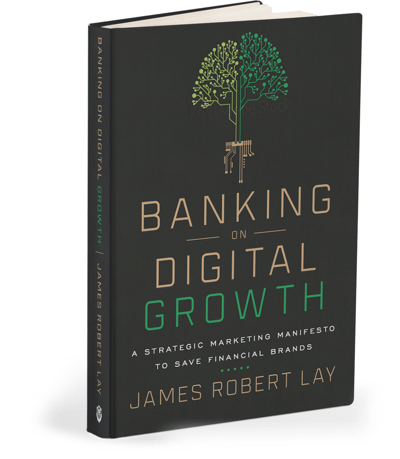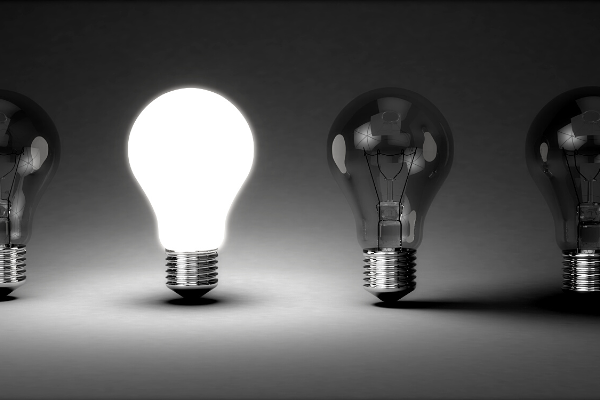Close your eyes for a moment. I want to take you back to the year 2007.
What was life like for you back then?
In the digital world: YouTube was just a little over two years old, Facebook had just opened up to the public after being a platform that was exclusively limited to college students, and Netflix had just delivered their billionth DVD.
As big as these three events were, an even bigger event took place in 2007, when a man who was known for his jeans and black turtlenecks stepped onto the stage and introduced his company's new product: the iPhone
Think for a moment how much our world has transformed since Steve Jobs stepped on that stage. The way we communicate with each other will probably never be the same. And communication is at the heart of marketing and sales the key to future growth at any financial brand.
So go ahead and open up your eyes and flash forward to today.
Not only has technology evolved at an exponential rate since 2007, but so has consumer expectations.
On the opposite end of the spectrum, competition has also changed as well. It’s changed to keep up with technology and the changing consumer demands.
Digital consumer expectations have been set by the big companies, like Amazon, Apple, and Google. While there may be some grace in getting caught up to these large corporations, these expectations will soon be a requirement.
Let’s take a look outside of the financial industry to another industry where consumer expectations and demands have changed:The music industry.
There were certainly changes already happening in the music industry before 2007. But in retrospect, when Steve Jobs introduced the iPhone, he put the death knell in the old model of the music industry. The iPhone sped up the rate of change enormously at the macro level when it came to music.

When you think about the idea of rapid development, it always leads to both upheaval and opportunity. That’s what we're moving through right now in the financial industry.
To make the parallel between the changes we have seen in the music industry and what we are facing in the financial industry now, I’d like to focus on three of the six D’s that Peter Diamandis has written about in his book, The 6 Ds of Tech Disruption: A Guide to the Digital Economy.
Dematerialization
We’ve seen the evolution in the music industry from the vinyl, to the eight-track, to the cassette, to the CD, and now to streaming. The same trend was also evident in the film industry as we saw the big reels shift to the VHS, then to the DVD, and finally to various streaming platforms, like Netflix and Amazon.
There has been a shift from larger pieces of technology and media to smaller, and eventually intangible, products. The new technology then becomes a standardized part of our culture.
Dematerialization has become the status quo.
In banking, we see dematerialization playing out on the transactional and service side of banking. Consumers continue to move away from going into the physical branch (even more so post-COVID) to take care of the transactional pieces of banking, like depositing a check or moving money around. Instead, they're using their mobile device to digitally make those deposits or move money around with P2P payment apps, like Zelle or Venmo.
As a father of four young kids, those platforms make life easier because you can pay your babysitter without having to write a check, or worse, stop at the ATM on the way home.
But, understandably, it's the dematerialization process that makes those who've built their entire careers around the physical role of branch sales or broadcast marketing feel confused, frustrated, and overwhelmed about digital and digital growth.It can be very scary for people to see their physical world taken away from them before their eyes.
Digital comes with the perceived good as well as the bad, and that brings us to the second part of digital disruption, which is democratization.
Democratization
Going back into the music industry time machine, we know that record labels and production houses used to control the process of production from front to back. They were the gatekeepers and controlled the music.
But with the rise of YouTube, we have seen unknown artists, such as Justin Beiber, strike a chord with a mass audience and rise to global stardom. The power to create your own music has disrupted the entire revenue model of the music industry. Artists are able to communicate directly with audiences through new technologies and distribution channels, from YouTube and Instagram to TikTok.
We’ve even seen brands like Amazon Prime and Hulu become non-traditional production studios, creating their own content. And they're using the power of digital to serve a much wider market than the old school Hollywood entertainment giants.
In banking, we see the democratization in the rise of digital-first and mobile-first financial brands. Fintechs and neobanks are popping up by the thousands. They are communicating directly with, as well as creating value for, niche market segments through digital and mobile technologies.
Whether it be banking, entertainment, or music, digital has given power to the people: the power to connect and communicate at scale.
Demonitization
I mentioned above the power of the record labels and production houses when it came to the distribution of music. But now, they have even lost the power to control the pricing models to make profits like they have in the past.
Record labels felt this pain in a big way. In the heyday of recorded music, record labels were raking it in. The peak sale of CDs was in the mid-'90s (before the bottom fell out). They averaged anywhere from $15 to $20 sitting on the shelves, while the production cost was really pennies on the dollar. But, if you’re like me, you purchased CDs because you really wanted to hear one or two songs. The consumers were getting the short end of the stick in this model.
And we all know what happened next.
Enter Napster and the streaming model.
The rise of digital and broadband brought about the democratization of music, which led to a huge shift in the industry's power balance. Record labels lost their ability to set prices because listeners had control of how they received and paid for music. The disruption from digital technology swept away a lot of the revenue that had previously been taken for granted.
Opportunities Ahead
What are you doing right now, post-COVID to take advantage of the dematerialization, the democratization, and the demonetization of banking?
What are the opportunities?
The patterns we saw in music and film are very much what is happening right now in the banking space, even more so because of COVID. Just like with those other industries, the entire banking model up to this point has been built around the physical world of brick and mortar, just like the Tower Records stores were.
This change can be scary for some, but I do see tremendous amounts of opportunities for financial brands to create and capture that have the courage to lean into those fears, the same fears that threaten to hold them back.
This article was originally published on December 4, 2020. All content © 2024 by Digital Growth Institute and may not be reproduced by any means without permission.





